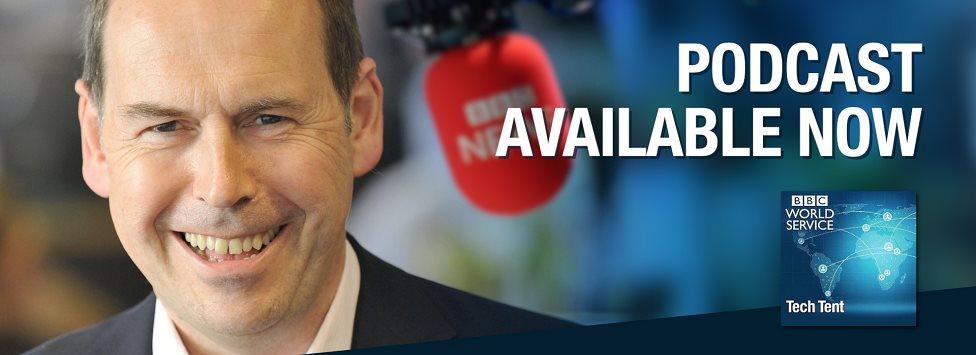Tech Tent: Web founder on fake news
- Published

Stream or download, external the latest Tech Tent podcast
Listen to previous episodes on the BBC website
Listen live every Friday at 15.00 GMT on the BBC World Service

The battle to curb the spread of fake news has been raging ever since last year's US election.
It's just one phenomenon that has made the early optimism about the potential of the web to improve the way we communicate look misplaced. On this week's Tech Tent podcast we hear from the web's founder about his concerns about the way the online world sometimes rewards lies above truth.
We also meet the man running the research lab that changed computing history. And we have a fascinating chat about chatbots, and just how human we want them to be.
Tim and Truth on the web
I spoke to Sir Tim Berners-Lee earlier this week, just as it was announced that he had won the Turing Award, often seen as the Nobel Prize for computing. He won it for creating the World Wide Web but it was evident from our conversation that he has become deeply worried over the last year about where it is heading.

Sir Tim Berners-Lee
For 20 years, he told me, he thought all we needed to do was make sure that the internet was open, there was net neutrality and no spying - and we could be confident that humanity would do wonderful things.
But now he's seen just what bad things humanity can do on social networks, where fake news and hate speech seem to be raging out of control.
"Fake things, false things tend to propagate more than truth and, in a way, maybe hatred tends to propagate in some cases more than love."
So what can be done? Sir Tim believes that a discipline called web science that he helped to start 10 years ago can help, by focusing on the importance of how you design web services.
He points out that the way Google's ad network or Facebook's Likes and Twitter's retweets are designed can inadvertently reward bad and destructive behaviour. And as the ultimate web scientist he still has faith that by adjusting those features, the online world can rid itself of these problems.
The Ultimate Ideas Lab
Xerox Parc is the legendary Silicon Valley research lab that gave birth to all sorts of ideas that shaped modern computing, from the mouse to the graphical user interface. The only problem for Xerox was that most of those ideas ended up benefitting others, rather than the company that is still best-known for its photocopiers.
Some years ago, the lab was spun out into a separate research and innovation consultancy, now called just Parc, and its new boss is Tolga Kurtoglu. He says his team of multidisciplinary scientists are still producing great ideas, particularly in areas where the digital and physical are coming together in real time.
He lists smart cities, batteries, healthcare and the Internet of Things as examples of where Parc hopes to make advances. I threw at him the common accusation that innovation had slowed in Silicon Valley and had given us trivial stuff such as Twitter rather than life-changing technologies. "We were promised flying cars, instead we got 140 characters."
He says innovations often turn out to be different from what was forecast but just as powerful. We may not have flying cars but we are well on the way to having vehicles that will drive themselves.
How human do you want your bot?
Xerox Parc changed the way we interact with computers, and now another revolution is under way where we converse with chatbots. But how should we relate to these bots which we are now going to encounter carrying out all sorts of functions once performed by humans?
The accountancy software firm Sage has come up with a finance assistant bot called Pegg. Kriti Sharma, who has the fabulous title of VP of Bots and AI at Sage, has firm views on this matter.
She says Pegg loves undertaking boring tasks such as filing receipts and has no ambitions to be human. "We think it's more important for bots to be useful and likeable than to become superhumans," she says.

Kriti Sharma wants bots to be "likeable"
On the age-old question of whether our jobs are threatened by these devices, she is pretty optimistic. For the most part, she says, bots like Pegg are doing tasks that are either tedious or too complex for humans. And while they may replace some workers, other jobs are created - Sage has employed what it describes as a conversation designer to give its bots a personality.
Kriti Sharma is, however, concerned about the trend to give female voices to AI assistants doing menial tasks. She says for the next generation AI and bots will be as familiar as smartphones: "If they grow up in a world where all the women are turning on lights and scheduling meetings, that's what they're going to learn and that's what's scary for me."
- Published4 April 2017